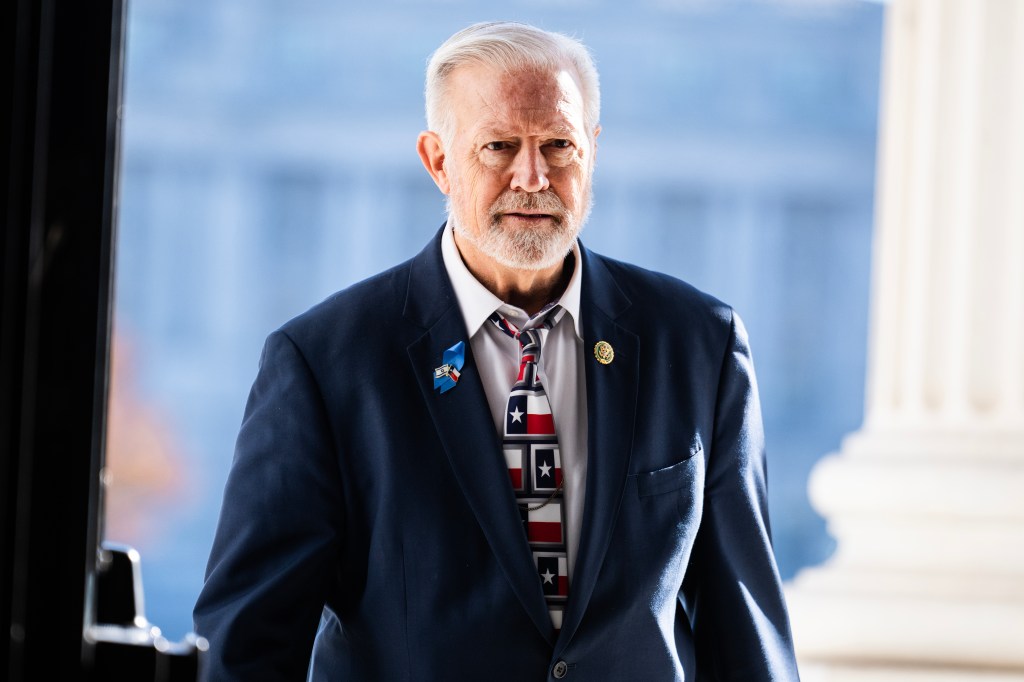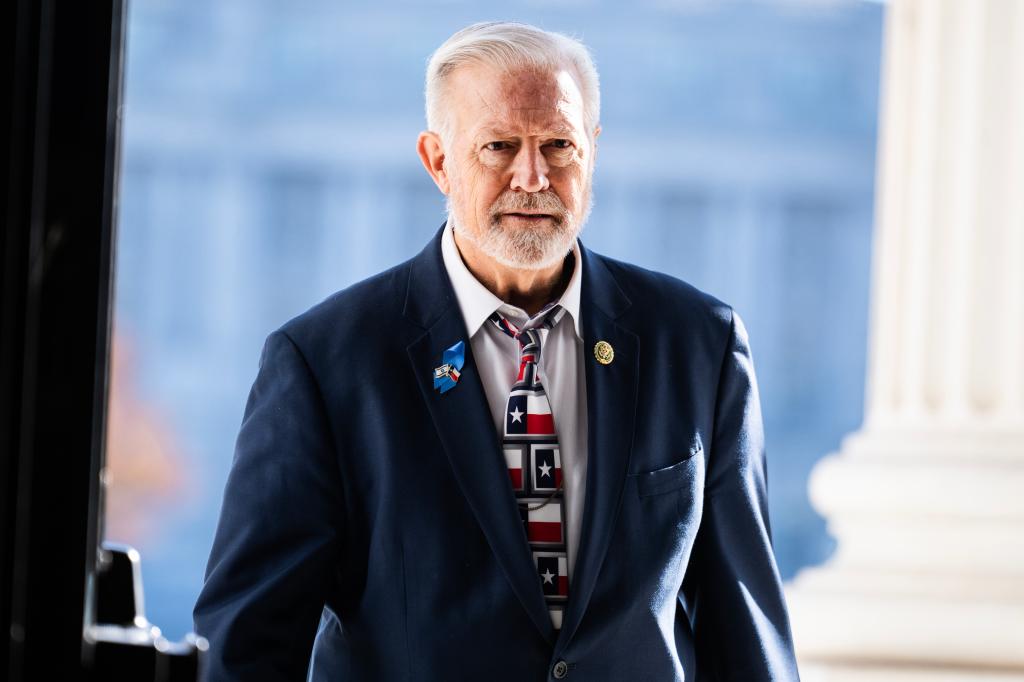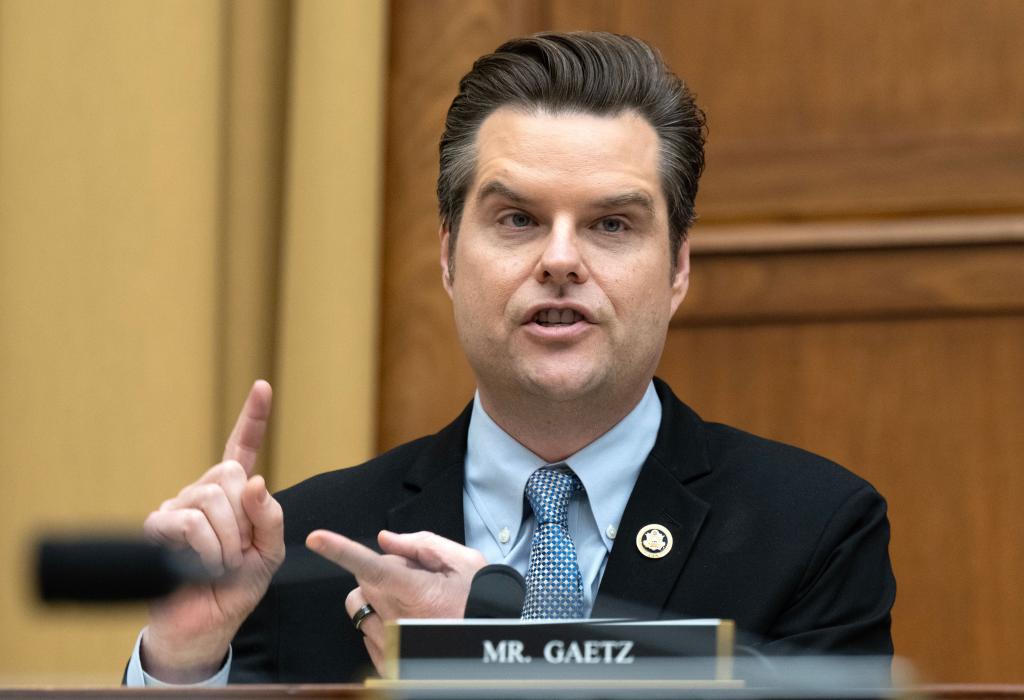House fiscal conservatives earmarked $450M in spending — average member got nearly twice as much as ‘Squad’
Members of the conservative House Freedom Caucus secured nearly $450 million in earmarks from recently passed government funding legislation, with the average member getting almost twice as much as far-left “Squad” members.
The taxpayer watchdog OpenTheBooks released a report this week cataloging the pork-barrel spending totals for more than a dozen Republican members who voted against the $1.66 trillion in fiscal year 2024 spending as part of two packages in March.
The report found 17 current Freedom Caucus members, as well as now-former member Randy Weber (R-Texas) secured $25 million per member — far higher than the $13.9 million that the average “Squad” member took in for their district projects, which OpenTheBooks noted in a separate report.
Many of the Republican fiscal hawks stressed that the funding would go to important infrastructure or other projects in their respective districts, in contradiction to what they saw as partisan earmarks pushed by “Squad” lawmakers.
“Their spending priorities may look dramatically different, but these findings illustrate one of Congress’ worst-kept secrets. When it comes to burning through our tax dollars, there’s effectively one party in Washington, and it’s addicted to spending your money,” OpenTheBooks founder and CEO Adam Adrzejewski said in a statement.
“Laudably, a simple majority of the Caucus still rejected earmarks — against all institutional force — and stuck to their principles and promises,” he added. “Those twenty-seven members who did not take earmarks in the House Freedom Caucus deserve thanks from taxpayers for the courage of their convictions.”
Weber — who voted against the first of two six-bill spending packages passed March 6 — received the largest share, with more than $144 million for his district covering the Gulf Coast port city of Galveston.
Weber still railed against earmarks for open-border, climate and LGBTQ initiatives tucked into the second six-bill package weeks later, a little more than a week after he was voted out of the Freedom Caucus, according to Politico.
Far-right Florida Rep. Matt Gaetz secured the second-highest amount with $50 million in earmarks, followed by Reps. Ben Cline of Virginia ($42 million), Andy Harris of Maryland ($39 million), Clay Higgins of Louisiana ($36 million) and Morgan Griffith of Virginia ($31 million).
“Typically, earmarks in Congress are used to exchange money for favors. I’m requesting necessary funding to ensure the needs of our military are met,” Gaetz told The Post in a statement.
“I voted against the minibus that included this earmark because spending will increase by tens of billions of dollars above the [former Speaker Nancy] Pelosi [D-Calif.] omnibus levels. Maybe I wouldn’t need to request any earmarks for our military if our weak leadership never wasted hundreds of billions of taxpayer dollars on Ukraine.”
“As publicly stated, I opposed the bill because of the level of overall spending and the removal of many Conservative policy riders through negotiations with the Senate. However, a tremendous amount of effort went into securing this community funding,” Higgins said in a statement after the first spending package passed. “These projects are critical for South Louisiana’s economic prosperity and financial growth.”
Since Congress lifted its ban on earmarks in 2021, the member-directed federal funding for localities has been a favorite target of conservatives who argue many of the projects are thrown in at the last minute and favor left-wing initiatives.
Congressional appropriators have defended the practice as transparent, with many of the community projects listed months in advance and guided by rules that cap the number of projects members can request funding for at 15, as well as disclosure requirements to prevent conflicts of financial interest.
But the report also drew attention to two dozen other members of the Freedom Caucus who voted against the spending legislation and expressed strong opposition to the earmarks, including the group’s chairman, Rep. Bob Good (R-Va.).
“If you’re a Republican planning to vote for this omnibus spending package, you ought to insist on AT LEAST 72 hours to read it because you will own every dollar of increased spending, every disastrous Biden policy this funds, and crazy wasteful earmark[s],” Good said before the second spending bill passed.
Still, Freedom Caucus Rep. Lauren Boebert (R-Colo.) went on to win at least $20 million for her districts, while rising GOP star Rep. Byron Donalds scored $18 million for his constituents in Florida.
At least $5 million of Donalds’ haul was set aside for a Naples-based sewer project, of which $1.1 million appropriated in state money had previously been vetoed by Florida Gov. Ron DeSantis.
Florida GOP Rep. Greg Steube, who in 2021 supported banning congressional earmarks but got nearly $10 million through the fiscal year 2024 spending bills, defended his infrastructure and community projects in an earlier statement to Politico.
“I’m not going to allow my district to miss out on federal funding opportunities for good, fiscally responsible projects while the Democrats spend, spend, spend like drunken sailors on ridiculous progressive priorities,” Steube told the outlet.
“I would support ending earmarks once again, but until that day, my district has a right to submit projects like every other district.”
Rep. Keith Self (R-Texas) and “Memer” of Congress Mike Collins (R-Ga.) got under $2 million apiece but stood by their “no” votes on the “minibus” funding.
“Funding for our mental health initiative is important,” Self told The Post of his earmark for Texas A&M University. “But it made no sense to support legislation filled with woke programs and pork barrel spending when America is nearly $35 trillion in debt.”
“It was a bad bill and deserved a ‘no’ vote,” said Collins, who accepted the earmark for a water main extension project in Madison County, Ga.
Some included in the OpenTheBooks report, such as Rep. Harriet Hageman (R-Wyo.), said they were not members of the Freedom Caucus — despite being allied with its agenda — and voted against the spending, but were still in favor of the earmarks.
“As long as Wyomingite’s [sic] money is being laundered through Washington, DC, I will continue to try getting as much of it returned to them as possible,” Hageman said.
Other allies or former members of the Freedom Caucus like House Speaker Mike Johnson (R-La.) and Rep. Max Miller (R-Ohio) voted in favor of the spending packages in March.
“This bill wasn’t perfect,” Miller said in a statement at the time. “But it imposes fiscal responsibility on our federal government and adheres to caps that will lead to $2.1 trillion in spending reductions that we started fighting for last year.”
“Instead of allowing the perfect to be the enemy of the good,” he added, “we should continue to move the needle.”















